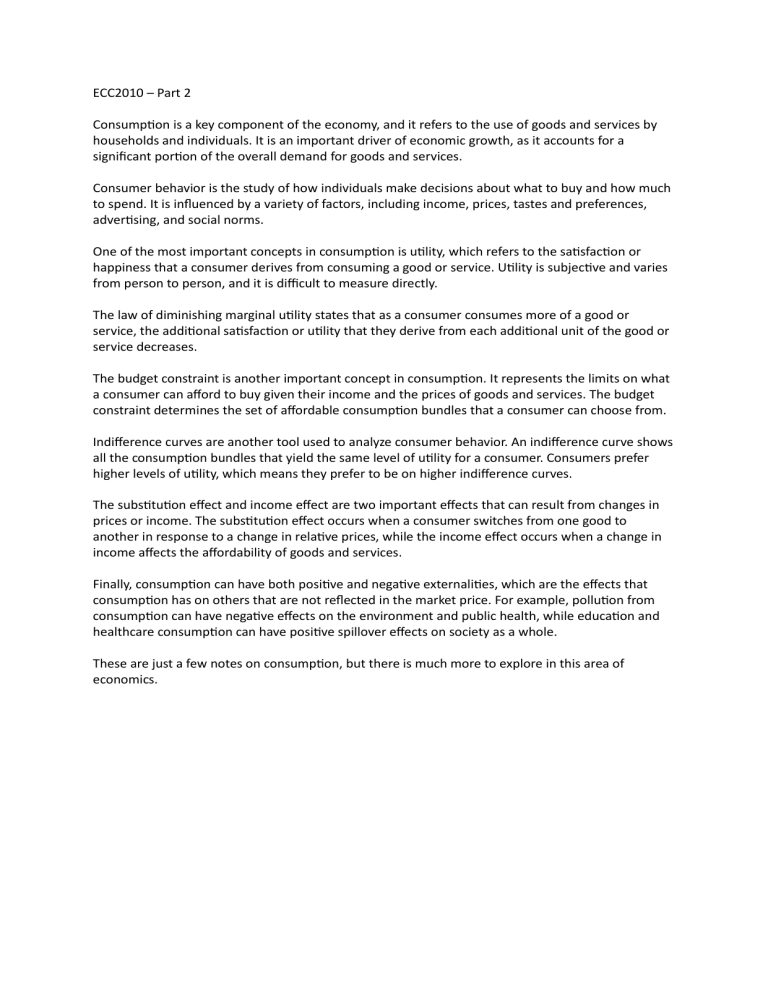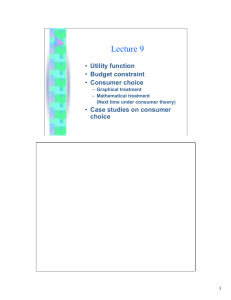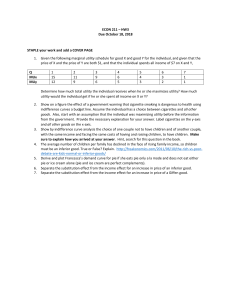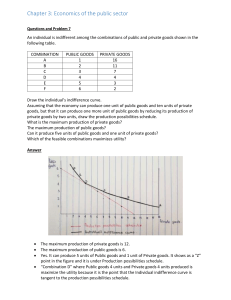
ECC2010 – Part 2 Consumption is a key component of the economy, and it refers to the use of goods and services by households and individuals. It is an important driver of economic growth, as it accounts for a significant portion of the overall demand for goods and services. Consumer behavior is the study of how individuals make decisions about what to buy and how much to spend. It is influenced by a variety of factors, including income, prices, tastes and preferences, advertising, and social norms. One of the most important concepts in consumption is utility, which refers to the satisfaction or happiness that a consumer derives from consuming a good or service. Utility is subjective and varies from person to person, and it is difficult to measure directly. The law of diminishing marginal utility states that as a consumer consumes more of a good or service, the additional satisfaction or utility that they derive from each additional unit of the good or service decreases. The budget constraint is another important concept in consumption. It represents the limits on what a consumer can afford to buy given their income and the prices of goods and services. The budget constraint determines the set of affordable consumption bundles that a consumer can choose from. Indifference curves are another tool used to analyze consumer behavior. An indifference curve shows all the consumption bundles that yield the same level of utility for a consumer. Consumers prefer higher levels of utility, which means they prefer to be on higher indifference curves. The substitution effect and income effect are two important effects that can result from changes in prices or income. The substitution effect occurs when a consumer switches from one good to another in response to a change in relative prices, while the income effect occurs when a change in income affects the affordability of goods and services. Finally, consumption can have both positive and negative externalities, which are the effects that consumption has on others that are not reflected in the market price. For example, pollution from consumption can have negative effects on the environment and public health, while education and healthcare consumption can have positive spillover effects on society as a whole. These are just a few notes on consumption, but there is much more to explore in this area of economics.





